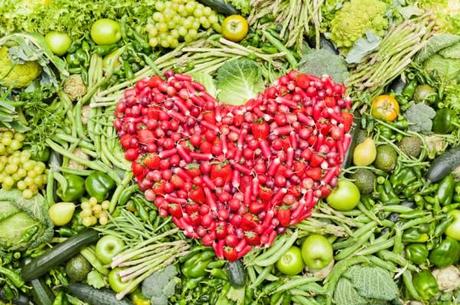
There are many myths and judgments made about vegetarianism. That people don’t get enough protein or other nutrients, and the diet is boring and limited are both common myths about the vegetarian lifestyle that are not necessarily true. The fact is that any diet – vegetarian, vegan, meat-eating – can be healthy or unhealthy. It just depends on the person and the effort put into eating a healthy, well-rounded diet. But one myth seems more worth looking into.
Myth Debunked
Though it is hard to definitively conclude that vegetarianism made some people live longer than others, there is definitely a correlation. In a study conducted over almost six years with 73,308 people, vegetarians had a 12% lower risk of dying than meat eaters. Another interesting find in the study conducted by Loma Linda University is that pesco-vegetarians (a vegetarian that does eat fish and seafood), vegans (someone who abstains from all animal products, including dairy and eggs), lacto-ovo-vegetarians (does not eat any meat, but eats dairy and eggs), and even semi-vegetarians all had varying but lower mortality rates than non-vegetarians, with pesco-vegetarians having the lowest risk of death at 19% lower than average non-vegetarians.
According to Gender
All in all, the results of the study show that vegetarian men live 9.5 years longer and vegetarian women live 6.1 years longer than average non-vegetarians. While the statistics sound pretty convincing, it is easy to misread correlation as causation. The numbers don’t lie; the vegetarians did indeed tend to live longer than the non-vegetarians. But it is important to consider other factors that are prevalent among vegetarians. They are already more likely to be married, have a higher education level, be older, not smoke or drink as much, and be thinner, and all of this is not even considering their vegetarian diet.
Weight and BMI
Another factor that might help explain the lengthened life is that vegans tended to weigh about 30 pounds less than their meat-eating counterparts. And it’s not just weight and lifespan that seem to benefit from the vegetarian or vegan diet. Studies also show that there are 19% fewer deaths as a result of heart disease in the vegetarian population and this factor is much more noted for men. Along with this and a lower body mass index, vegetarians are also less likely to die from diabetes and cancer too. It all adds up when the type of foods vegetarians tend to load up on are considered – foods low in cholesterol and saturated fat, high in fiber, complex carbohydrates, and other vitamins and nutrients that they need to consume in order to get a well-rounded diet.
Vitamins and Nutrients
Often the types of foods vegetarians choose to eat are also full of protein (to make up for any deficit from not eating meat) and cancer-fighting ingredients. As vegetarians and vegans tend to be more aware of what they are putting in their bodies, any vitamins and nutrients they feel they may be lacking in their diets can usually be easily obtained from taking vitamins and supplements. Meat, dairy, and eggs, however, can contain high levels of cholesterol, saturated fat, and calories, all detrimental to health in large quantities. Many foods in meat-eating diets are also lacking in fiber, vitamins, and other beneficial ingredients. They also tend to contain hormones, toxins, and antibiotics that are often linked to health problems.
Rounding up the Facts
So while this correlation does seem promising, it does not necessarily prove that not eating meat is the reason vegetarians live longer. Simply cutting out meat will not automatically add 5 or 10 years to one’s life. However, a lot can be learned from this study and the overall healthier lifestyle of vegetarians and vegans. It is easy for non-vegetarians to also obtain many of these benefits of the vegetarian lifestyle. Vegetarians could easily fill up on French fries, chips, and cheesy pasta, and some do, but many are health conscious enough to instead load up their diets with fruits, vegetables, and whole grains. Meat eaters too may only indulge in low-fat meats and fill the rest of their diets with lots of healthy vegetables. It all depends on the balance.
Anyone, regardless of whether he or she is a strict vegan or devoted meat eater, can benefit from what researchers have discovered about vegetarian’s life spans. Making sure to get enough healthy protein, fiber, and the essential amounts of vitamins, minerals, and other recommended foods is important for everyone. Just making the conscious decision to be more aware of health and how eating affects one’s life in the long term is probably going to help increase lifespan by making better decisions. Incorporating some of the healthy habits that vegetarians practice, such as eating foods other than meat that are rich in fiber and protein, is an easy way to begin to sample some of the lifestyle benefits of a vegetarian diet.
